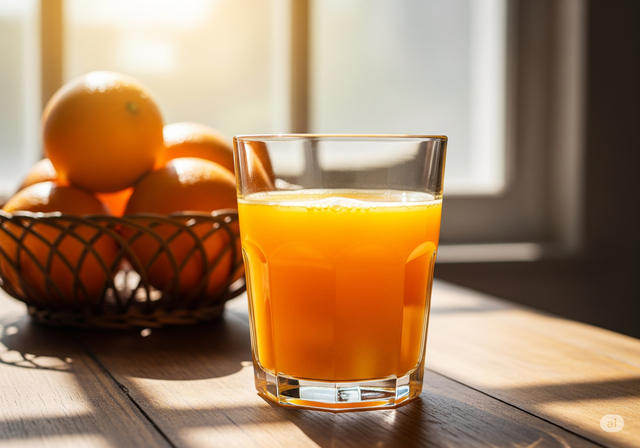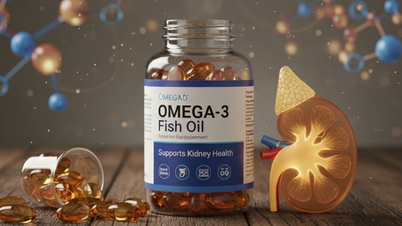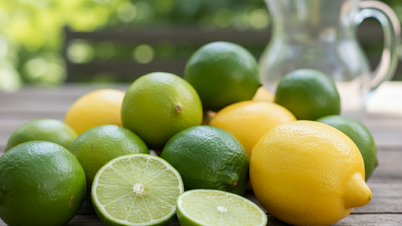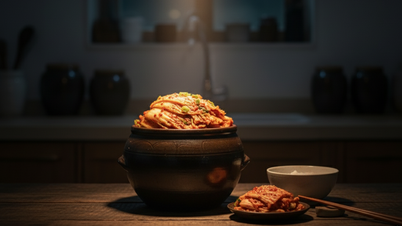Start your day with health news , readers can also read more articles: What happens to your blood sugar when you drink orange juice?; What cancer risk does a cup of coffee in the morning help reduce ?; 4 common actions that accidentally damage your eyes...
Gym: Mistakes in increasing protein intake can easily damage the kidneys
Increasing the amount of protein in your diet is very common among gym goers. The goal is to gain muscle, lose fat and improve exercise performance. But there are health risks if you use protein incorrectly.
Too much protein puts stress on the kidneys, which are responsible for filtering out protein metabolic byproducts such as urea and creatinine.

Protein is essential for the body but too much can be harmful.
PHOTO: AI
High-protein diets do not directly cause kidney disease in healthy people. However, studies show that some common mistakes can increase the risk of kidney damage.
Overuse of animal protein. Eating too much red meat such as beef, pork and processed meat such as sausages and cold cuts over a long period of time can easily damage the kidneys. A study published in the Journal of the American Society of Nephrology shows that eating large amounts of red meat increases the risk of kidney failure.
Red meat contains a high amount of animal protein and a large amount of purine. When entering the body, this amount of purine is converted into uric acid. This is a factor that causes chronic kidney disease and kidney stones. In addition, processed meat often contains a lot of sodium and inorganic phosphate, which can easily increase the filtration pressure on the kidneys and increase blood pressure.
Over-reliance on protein milk. Protein supplements such as whey, casein or soy powder are very popular among bodybuilders. However, excessive use will put a lot of pressure on the kidneys. Some research evidence has found that protein intake exceeding 2 grams/kg body weight per day over a long period of time will increase the burden of nitrogen metabolism, thereby reducing glomerular filtration function. The next content of this article will be on the health page on July 26 .
4 common actions that accidentally hurt your eyes
Eyes have to work continuously for many hours every day but not everyone is conscious of eye care. Meanwhile, many people are maintaining habits that seem normal but silently harm their eyesight.
Here are some common things people are doing that are inadvertently damaging their eyes:

Overuse of eye drops can cause harm to the eyes.
PHOTO: AI
Overuse of eye drops . Eye drops, especially those that reduce redness, often provide immediate relief. However, if used incorrectly or too often, they can be harmful. Many products contain vasoconstrictors, which can cause redness to return and worsen once the effect of the drops wears off.
Smoking. Smoking not only affects the lungs and heart, but also causes great harm to the eyes. Specifically, smoking significantly increases the risk of eye diseases such as age-related macular degeneration, cataracts and optic nerve damage. The next content of this article will be on the health page on July 26.
What happens to your blood sugar when you drink orange juice?
Many people believe that orange juice causes high blood sugar because it contains a lot of sugar and no fiber.
In fact, orange juice only causes a slight increase in blood sugar levels, especially in healthy people, according to Aviv Joshua, a nutritionist working in the US.
Although orange juice contains carbohydrates, the natural sugars in orange juice do not spike blood sugar like the refined sugars found in soda.

Orange juice does not cause large fluctuations in blood sugar levels, even when consumed pure and undiluted.
Photo: AI
In addition to vitamins and minerals, orange juice also contains flavonoids, a group of plant antioxidants, notably hesperidin, which has the ability to reduce blood sugar.
Therefore, orange juice does not cause large fluctuations in blood sugar levels, even when consumed pure and undiluted.
The glycemic index (GI) of orange juice is low, ranging from 43 to 49. This index reflects how quickly a food raises blood sugar levels. A score of 55 or less is considered low.
A fresh orange has a glycemic index of about 43, which is the same as orange juice. However, whole oranges also contain fiber, which helps slow down the absorption of sugar into the blood. Start your day with health news to see more of this article!
Source: https://thanhnien.vn/ngay-moi-voi-tin-tuc-suc-khoe-bi-quyet-nap-protein-dung-cach-de-bao-ve-than-185250726221016747.htm







![[Photo] Cutting hills to make way for people to travel on route 14E that suffered landslides](https://vphoto.vietnam.vn/thumb/1200x675/vietnam/resource/IMAGE/2025/11/08/1762599969318_ndo_br_thiet-ke-chua-co-ten-2025-11-08t154639923-png.webp)
































![[Video] Hue Monuments reopen to welcome visitors](https://vphoto.vietnam.vn/thumb/402x226/vietnam/resource/IMAGE/2025/11/05/1762301089171_dung01-05-43-09still013-jpg.webp)


































































Comment (0)